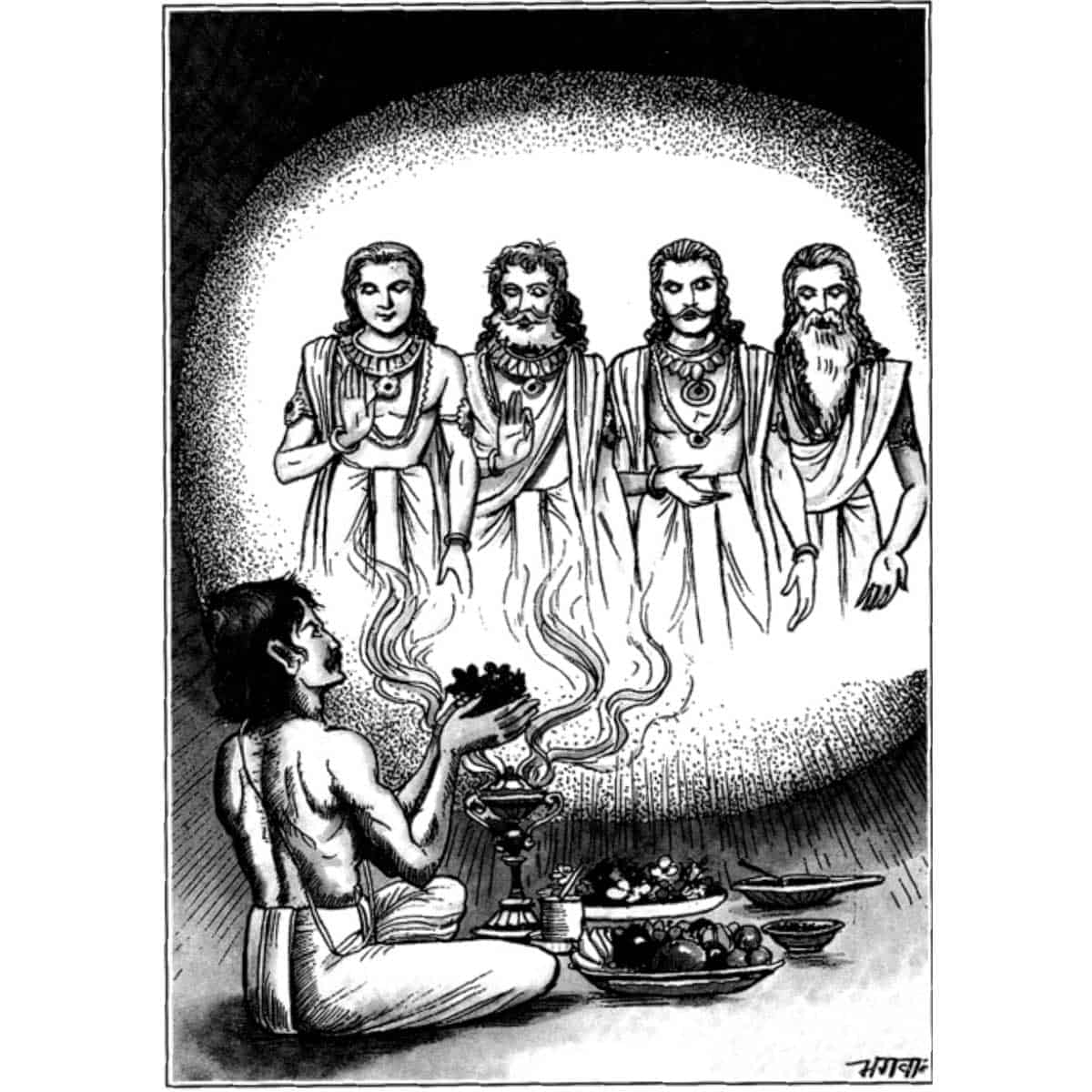Are they the same?
The Myth
According to mythological texts, the world of the dead is a realm distinct from and above the earth in which the souls of dead humans free off their material bodies reside. The concept is that when relatives of these deceased perform an annual offering of food and water, they reach them and feel satisfied. And so, it is said in religious texts that it is essential to make these offerings for the good and well-being of the dead relatives.
True contention in Vedic Texts
But according to Vedic contention, the world of the dead (bhuvarlok) represents the entire space in which earth and all other planets of our solar system are present.
The word ‘pithar’ is a synonym of ‘pithr’, meaning one who fosters or takes care of. This sentiment applies to all living people like mother, father and those ascetics and wise ones who foster or mentor all with their wisdom and standards of behaviour.
“pithā pāthā vā pālayithā vā janayithā”. Ni. 4/21
Father is said of one who creates and protects.
“ajno bhavathi vai bālaha pithā bhavathi manthrdhaha”. Manusmriti 2/153
A child is said as the ignorant and father as the giver of knowledge.
So, in reality, to serve the living mother, father, and the teachers who give knowledge is in itself ‘Shrādħ’ (offering in the form of service). To satisfy them, by all means, is in itself ‘Tharpan’ (the act of pleasing them).
False Interpretation
But by contravening and violating these Vedic contentions, the unwise ones with shallow knowledge by selfish reasons have named the dead ones as ‘pithar’ and introduced the false tradition of ‘pind dhān’ (offering a ball of flour to the deceased) and other acts by going to Gaya and other identified places. This is nothing but rituals of total superstition and blind faith.
“nāmuthra hi sahāyārtħ pithā māthā cha thishŧathaha.
na puthr dhārā na jnāthirdħarmasthishŧathi kevalaha”.
“aekaha prajāyathe janthureka aeva pralīyathe.
aeko’anurbhukthe sukrthameka aeva cha dhushkrtham”. Manusmriti 4/239 – 240
“yadhi bhukthamihānyena dhehamanyasya gac’cħathi.
dhadhyāth pravasathām shrād’dħam na thatptħyashanam bhaveth”. Vāl. Rāmā. Ayodħya Episode 108
Meaning: Neither mother, father, wife, son, nor any other relative can help the dead souls in the other world. Only one’s righteousness would be of help there. The soul gets born alone and also leaves alone. It gets to enjoy the fruits of good and bad deeds also alone only. If it is so misunderstood that when the food eaten by someone here, it reaches others, why not we eat in the name of those who have gone abroad so that they don’t have to eat at all during transit?
Concocted Superstition
Apparently, as per the contentions of Manusmriti and Vālmiki Rāmāyan, it becomes clear that eating or making others eat in the name of dead ones with the expectation that it would reach them is nothing but ignorance and false superstition. There is also the practice of giving cow in charity by false imagination of river Vaitharni in the hope of transcending the realm of worldly existence (Bhavsāgar). This is also entirely against the contentions of Ved and other ancillary texts. What is said in Gita in this connection is worth remembering.
“vāsānsi jīrnāni yatħā vihāya, navāni grh’nāthi naro’aparāni.
thatħā bhārīrāni vihāya jīrnānyanyāni samyāthi navāni dhehī”. Gita 2/22
Meaning: Just as people wear new clothes discarding old clothes, souls also take up new bodies, relinquishing old bodies.
Apparently, in this context, ritualistic offerings (Shrādħ and Tharpan) in the name of dead ones are absolutely meaningless.





